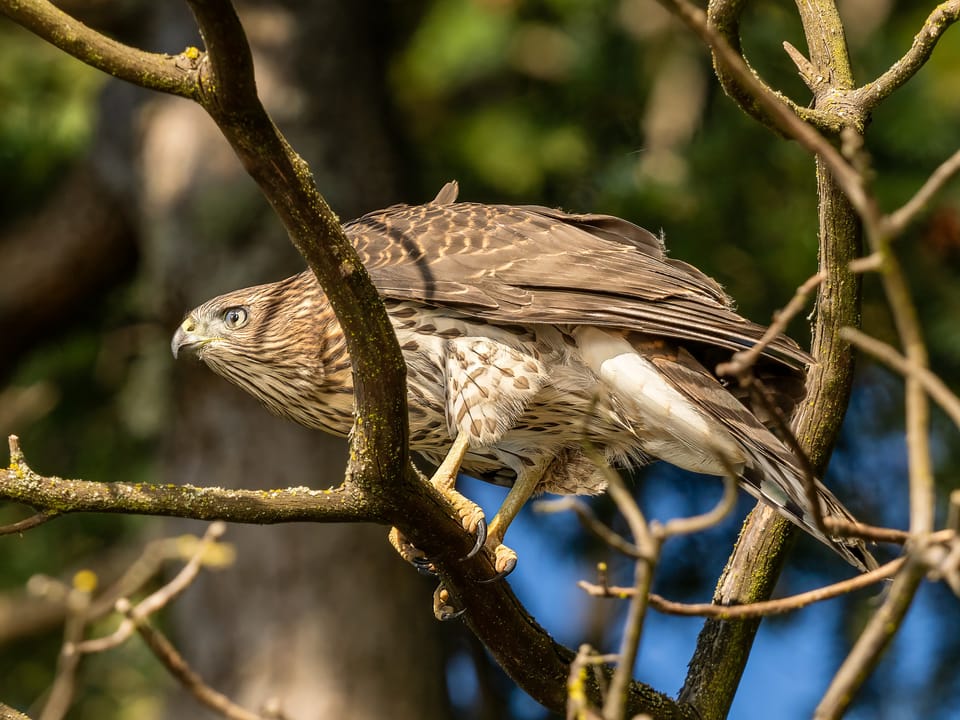EcoWest News, August 19, 2025

Welcome to EcoWest News, a weekly round-up of news and resources that you can put to use in addressing environmental issues and protecting the wild in your community.
Across the West
Members of the Alberta Peregrine Falcon Recovery Advisory Group are helping young peregrine falcons born on Edmonton and area rooftops make the transition to living in the wild. [CTV News]
The City of Winnipeg planted as many trees as it removed in 2024; however, it will need to over-plant and preserve both public and private trees to restore its urban canopy. [CBC]
Overfishing and industrialization since European contact have destroyed nearly 90% of the food systems in Burrard Inlet, Metro Vancouver. [CBC]
Vancouver is a leader in sustainable stormwater management. Large buildings and new homes must manage rainwater on site. Rain trenches, corner bulges, and rainways are part of new road projects. [The Globe and Mail]
A map of lesser-known parks is a chance to enjoy nature without the crowds. [CPAWS]
Across Canada
“Rather than doubling down on new oil and gas infrastructure or projects that would, at best, only create a relatively small number of short-term jobs, governments must instead align workforce development with planning for changing energy industries. In doing so, they can ensure that workers are set up for success in the growing low-carbon economy.” [Pembina Institute]
Unless properly managed, Canada’s water supplies will run out. Persistent drought across Canada will be exacerbated by the rapid uptake of AI and construction of new water-hungry data centres. [The Narwhal]
Canada achieved an 8% drop in emissions between 2005 and 2022 with the biggest drop in Ontario, which phased out coal, and increases in Manitoba, BC, and Alberta, most notably in Alberta due to oil and gas production. [440 Megatonnes]
Around the World
The ins and outs of ecological forest management, balancing forest health and people’s needs. [Inside Climate News]
No deal is better than a bad deal when addressing plastic pollution state advocates for phasing out the use of hazardous chemicals in plastics manufacturing and limiting the amount of plastic produced. Recycling and waste management isn’t adequate. [The Verge]
Digital activities (streaming a movie, video games, tapping on a computer) account for 40% of the CO2 emissions we can emit without triggering global warming. Luxembourg is the exception. Its data centres are powered entirely by renewable energy. [Icarus Complex]
EVs
"Overall, EVs have been shown to emit as much as 71 per cent less carbon pollution than gas cars, including pollution from mining, manufacturing and driving." [CBC]
Most electric car batteries still have more than 80% capacity after 200,000 miles. [Sustainability by the Numbers]
Making a Difference
The top 3 individual actions we can take to help the environment: avoid plane flights, don’t own a dog, and use renewable electricity. [CBC]
Five hopeful novels about the climate crisis move beyond dystopia to possibility. [The Guardian]
Biodiversity
“What if development also meant restoring habitats, planting native species, bringing biodiversity into our cities, and designing with nature rather than against it? What if the true sign of progress was a neighborhood alive with birdsong, shaded by trees, and connected by green corridors?” [GreenUP]
Humans are driving rapid evolutionary change from squirrels with smaller, less-efficient jaw muscles to changing limb length and toe pads on urban lizards. [Smithsonian]
Companies should be required to contribute to long-term monitoring and maintenance of habitat compensation projects. Human-constructed marshes don’t naturalize without ongoing management. [The Narwhal]
Nature’s Wonders
The winners of the 2025 Capture the Dark photo contest: rare red sprite electrical discharges, celestial dances, the Pleiades above the Eiffel Tower, and glow-in-the-dark fungi. [Dark Sky]
Photo credit: https://www.flickr.com/photos/apmckinlay/54721827538/
EcoFriendly West informs and encourages initiatives that support Western Canada’s natural environment through its online publication and the Nature Companion website/app. Like us on Facebook, follow us on BlueSky, X, and Mastodon, or subscribe by email.

Member discussion